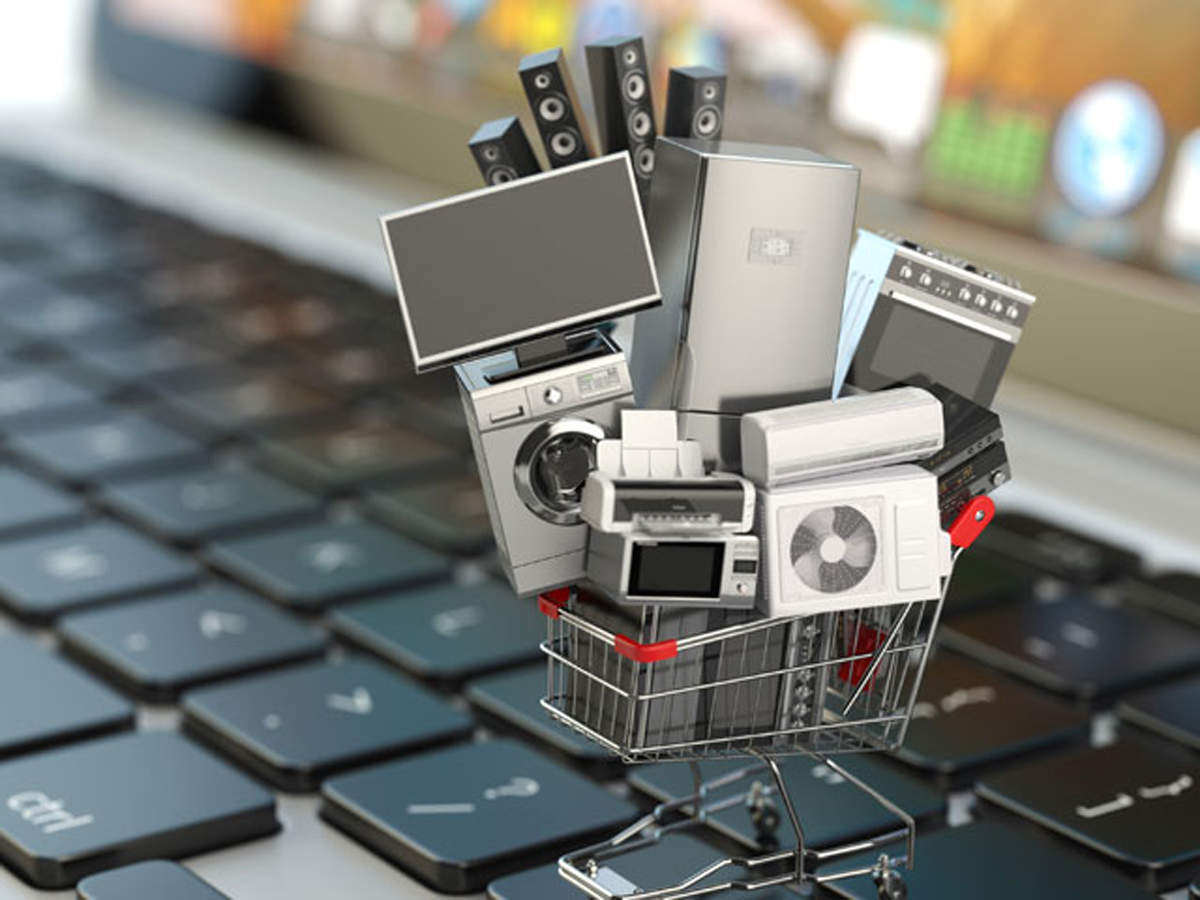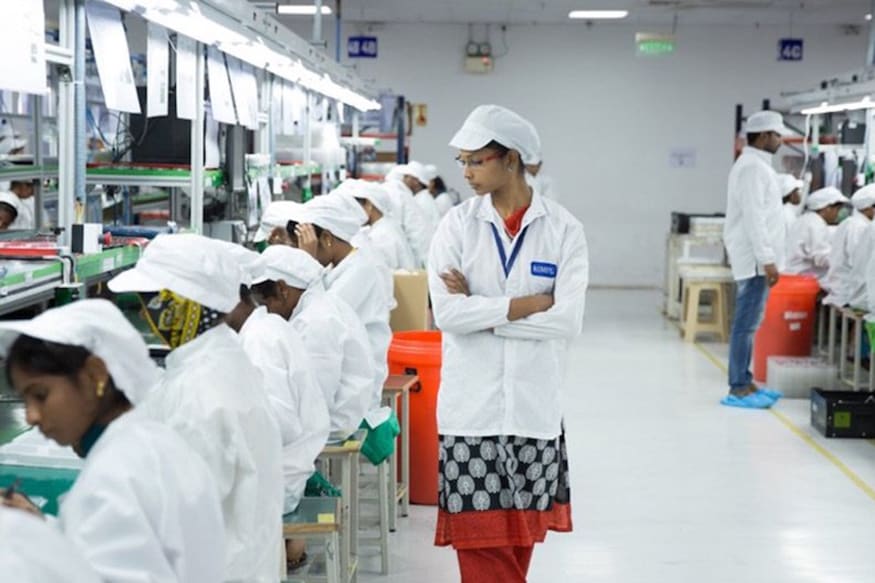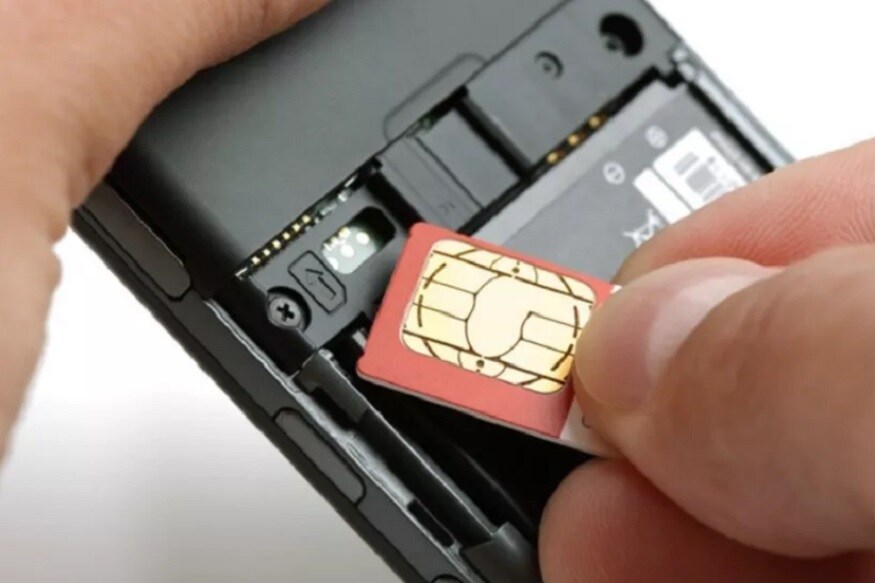Mobile, ubiquitous, and pervasive learning: fundaments, applications, and trends / Alejandro Peña-Ayala, editor
Online Resource
Mobile Computing Systems and Applications, IEEE Workshop on [electronic journal].
IEEE Computer Society
Mobile gaming in Asia: politics, culture and emerging technologies / Dal Yong Jin, editor
Online Resource
Mobile teams to check firecracker noise levels
The state government will send out teams to various districts and adjoining areas of Kolkata.

Mobiles, TVs, refrigerators to be available on e-commerce platforms from April 20
Electronic items like the mobile phones, TVs, laptops will be available on the e-commerce platforms from April 20, the official said. However, the delivery vans of the e-commerce companies will need permission from authorities for plying on the roads. According to Wednesday's guidelines, commercial and private establishments were allowed to operate during the extended lockdown.
Mobile and ubiquitous media : critical and international perspectives / edited by Michael S. Daubs and Vincent R. Manzerolle
Mobile forensic investigations : a guide to evidence collection, analysis, and presentation / Lee Reiber
Mobile Web 2.0 : developing and delivering services to mobile devices / edited by Syed A. Ahson, Mohammad Ilyas
Startup Life in Hi-Fi launches mobile news feed of publisher content, selectable by hashtags
Mobile users spend little time viewing web content on their mobile browsers, preferring to read most of it through their social networks. As a result, publishers are losing control of their content, and users are overloaded with content sources.
complete article
Build an HTML5 Form With on-Off Input Sliders Using jQuery
Mobile app interfaces have been utilizing on/off sliding switches for a while. These are most commonly found on the settings page where users can update preferences for their account. But web designers have taken notice and have built many open platforms to generate your own on/off switch sliders. In this tutorial I want to look […]
Mobile suit Gundam. story and art, Yasuo Ohtagaki ; original concept by Hajime Yatate and Yoshiyuki Tomino ; translation, Joe Yamazaki ; English adaptation, Stani ; touch-up art & lettering, Evan Waldinger ; cover & design, Shawn Carrico ; editor
Hayden Library - PN6790.J34.K5413 2016
Mobile lenses on learning : languages and literacies on the move [Electronic book] / Mark Pegrum.

Mobile phone services restored in Kashmir
The mobile phone services have been restored across the Kashmir valley, they said, adding the decision was taken in view of the improving situation.
Mobile data usage in India is at par with developed markets
India has the potential to unlock over $50 billion online commerce by driving awareness, usage, and transactions among the current and next set of internet users and shoppers, as per the new report issued by Bain & Company, Google and investment
Paytm join hands with Delhi Daredevils
Mobile-first financial services platform Paytm has joined hands with announced Delhi Daredevils in the upcoming 11th edition of the VIVO Indian Premier League (VIVO IPL). Tickets will go live on Paytm and Insider.in after the 2nd week of March for
Pebble ELITE are foldable wireless headphone priced at Rs. 2,750
Mobile accessory brand Pebble has launched new wireless headphones for music enthusiasts in India. Priced at Rs. 2,750, ELITE headphones are over-ear Bluetooth headphones, and will be available online on company's official website Pebblecart.com and e-commerce platforms Flipkart & Amazon.in. The

Mobile Phone Manufacturing Resumes as Economy Slowly Reopens, ICEA Lauds Govt for Move
The government, on Friday, issued a directive to ease restrictions on manufacturing and sale of handsets across the country as the lockdown was extended for two more weeks.

Mobile SIM एक्टिवेशन को लेकर सरकार लेगी ये बड़ा फैसला, कोरोना वायरस है वजह
डीओटी सुरक्षा से संबंधित मुद्दों की समीक्षा करने के बाद सिम के एक्टिवेशन पर फैसला करेगा, क्योंकि लॉकडाउन के दौरान सिम को लोगों के घर तक पहुंचान होगा...
Mobile users unwittingly clicking on sites that push monthly fees
At some point on October 15, 2015, possibly in the dead of night while waiting for my then one-year-old to go back to sleep, two clicks on my mobile phone cost me £615, says JOANNA TWEEDY.
Social media giants are urged to deal with 5G conspiracy theorists
Mobile companies described the fears 5G caused coronavirus as 'baseless', with the government describing them as harmful to public health.
Man arrested after 'attacking Tesco worker' and threatening shoppers in Birkdale Merseyside
Mobile phone footage shows the man furiously kicking the doors of the Tesco Express store in Birkdale, Merseyside on Tuesday morning.
Mobile phone detection cameras go live in NSW this weekend
Every day Australian drivers are caught on camera using their phones eating, reading and even doing drugs at speeds of up to 100km/h.
Mobile phone cameras to catch texting drivers in NSW turned on today
NSW drivers who threaten lives by using mobile phones behind the wheel risk being caught by unmarked cameras as new technology rolls out across the state today.
Mobile gaming is a $68.5 billion global business, and investors are buying in
By the end of 2019, the global gaming market is estimated to be worth $152 billion, with 45% of that, $68.5 billion, coming directly from mobile games.
Sensor Tower raises $45M as demand for app data grows
Mobile app market intelligence firm Sensor Tower, which provides data-driven insights about the app economy, has raised $45 million in new funding from Riverwood Capital. This is the first significant investment the now-profitable company has seen since its $1 million seed round in 2013. The investment speaks to the growing demand for data about the […]
O2 threatens legal challenge to UK 5G auction
Mobile operator’s move could potentially delay sale already affected by coronavirus upheaval
Mobile Phones be Acting as 'Trojan Horses' for Coronavirus
Mobile phones host cocktail of live germs, aiding spread of diseases and urging billions of users worldwide to decontaminate their devices daily, warned new study.
Mobile Tower Radiation Ups Oral Problems Risk
Radiation from mobile phone towers was found to increase oral problems, said a doctor at Saveetha Dental College and Hospital. "The environment plays
Mobile Medical Apps with High Rating Not Always Accurate: Health Warning
A high 'star rating' for a mobile medical app doesn't necessarily reflect medical accuracy or value, observe Johns Hopkins researchers. The research

Mobile Game Encourages Real-World Sharing
The sharing economy is built on reputation. So is online social gaming. Now the two are coming together.

Mobile Bay Alabama's First Line Of Oil Defense Is Bigger Boom On 2,000 Pound Anchors
A most painful demonstration of Murphy's Law - that

Mobile coworking bus lets professionals work, hike, bike & surf (Video)
This renovated bus is a mobile coworking space that brings location-independent professionals out into the great outdoors, combining work with a hike, a bike trip or a surf ride on the waves.

Mobile solar-plus-storage device could be an entry-level gateway to clean energy
The SolPad Mobile device offers a scaled-up solar charging and battery solution for both home and off-grid applications.

Mobile Fruit Stands Fight Unemployment and Food Deserts in Chicago
Innovative model brings fresh produce and jobs to areas and people in Chicago that need it most

Mobile solar 'sail' powers Shigeru Ban's spherical auditorium in Paris (Video)
Looking like a "great ship," this solar-powered music venue is a new gateway into the city.

Mobile Technology’s Impact on Emerging Economies and Global Opportunity
Event Information
December 10, 2014
10:00 AM - 12:00 PM EST
Falk Auditorium
Brookings Institution
1775 Massachusetts Avenue, N.W.
Washington, DC 20036
Webcast Archive:
Advances in mobile technology have transformed the global marketplace, especially in emerging economies. How has mobile technology changed economic progress in emerging economies? Who has benefited and why? How can emerging economies further take advantage of the mobile revolution to propel growth? Which challenges and decisions do policymakers currently face?
On December 10, the Center for Technology Innovation hosted an event to discuss mobile technology’s role and potential future in developing economies as part of the ongoing Mobile Economy Project event series. A panel of experts discussed what is needed to ensure that emerging mobile economies continue to grow, and how intellectual property, spectrum policy, and public policies contribute to sector development.
Join the conversation on Twitter using #TechCTI
Audio
Transcript
Event Materials

Mobile financial services are making headway in WAEMU
Electronic money, or e-money, emerged in the countries of the West African Economic and Monetary Union (WAEMU) following the adoption, in 2006, of a Central Bank Instruction establishing a flexible regulatory framework aimed at encouraging e-money business. The activity expanded in 2009 with the involvement of telecommunications operators in the provision of mobile telephone-based financial services, which increased the number of users and the volume of transactions.
A growing business
At the end of September 2015, 22 million people, or nearly a quarter of the people in the union, subscribed to financial services via mobile phone. Approximately 30 percent of those subscribers carried out at least one transaction per 90-day period.
Some 500 million transactions took place over the first nine months of 2015. The cumulative value of the transactions was 5 trillion CFA francs ($8.5 billion) by the end of September 2015, a growth of 142 percent from September 2014. Between September 2013 and September 2014, this value grew from CFA 1 trillion to CFA 2.068 trillion, an increase of 107 percent.
The mobile phone financial services distribution network followed a similar upward trend, rising from 93,621 points of services in 2014 to more than 132,658 at the end of September 2015.
Figure 1. Trends in the value of transactions
The socioeconomic environment in the union goes a long way to explaining the success of mobile telephone payment services. Indeed, this method of providing money transfer or payment services is particularly well suited to people who lack access to the mainstream banking system, and also affords non-bank institutions the opportunity to offer users non-cash money against cash deposits, which can then be used for a variety of financial transactions.
The growing involvement of telecommunications operators
The market is increasingly dominated by partnerships between banks and telecommunications operators, which represented 25 of the 33 licensed or authorized e-money issuers at the end of December 2015. In the framework of this model, known as the bank model, the bank has responsibility for issuing the e-money.
The other seven non-bank institutions, under the non-bank model, are authorized to issue electronic money as “Electronic Money Institutions” (EMIs) [1].
In WAEMU, e-money issuers are supported by a regulatory framework that was revised in 2015 to ensure increased security and quality of payment services backed by electronic money.
Figure 2. E-money issuers in WAEMU
Note: DFS denotes microfinance institutions.
A revised regulatory framework
With the expansion of mobile phone financial services and the growing involvement of telecommunications operators, the Central Bank has revised its regulatory framework with the aim of enhancing the security and quality of payment services backed by electronic money. The most salient improvements must focus on:
- Increasing issuer accountability by clarifying users’ roles in partnerships with technical service providers. With this goal in mind, the activities of technical service providers have been restricted to technical processing or the distribution of e-money under the responsibility of the issuer. In addition, issuers are responsible for the integrity, reliability, security, confidentiality, and traceability of all transactions carried out by all of their distributors; Stimulating competition through transparent pricing with an obligation for issuers to publish their rates;
- Specific requirements in terms of governance and internal and external audits for electronic money institutions, standards of integrity on the part of the management, professional secrecy and regular infrastructure audits;
- Increased protection for bearers of electronic money, including keeping funds in dedicated accounts, requiring a constant equivalence between the amount of e-money and the balances in the dedicated accounts, and mandatory creation of a mechanism to take in and deal with complaints by bearers of electronic money;
- Reinforcement of the supervisory mechanism by reducing deadlines for reporting on issuers’ activities to the Central Bank and adopting sanctions for violations of regulatory provisions.
Provision of mobile-phone-based financial services
Mobile-phone-based financial services provided in WAEMU include three categories of services, namely services involving the use of cash (banknotes and coins), e-money services, and so-called “second generation” services.
The first type of service essentially involves deposits of cash or refilling of electronic wallets, as well as withdrawals. This type of service represents 24 percent of user transactions. Cash deposits predominate; they allow customers to provision their electronic money accounts.
Seventy-six percent of the funds deposited into e-money accounts are used, above all, for purchases of telephone credit, payment of bills, person-to-person money transfers, and money transfers from individuals to businesses and from individuals to government agencies. The main payment services found in WAEMU pertain to payment of water or electricity bills, payment of satellite television subscriptions, and purchases of goods in supermarkets or fuel at service stations.
Payments of taxes or income taxes to government agencies and payments of micro-loan installments are also made through mobile phone financial services, but are much less common.
So-called “second generation” services, namely micro-insurance, micro-savings, and micro-credit, are currently emerging in WAEMU. Their development could be an opportunity to provide access to the banking system for the users of the services.
Finally, interoperability is just beginning to be implemented based on bilateral agreements between stakeholders, particularly with a view to offering cross-border payment services between member states of the union.
Challenges
A review of the development of mobile phone financial services in WAEMU reveals some obstacles to the rapid development of this type of financial service within WAEMU. They include:
- a low number of active users, due to the high cost of the services;
- the fact that the services are not well known due to inadequate financial education;
- the low rate of digitization of government agencies’ payment systems; and
- insufficient partnerships between bank and non-bank issuers with a view to developing a more inclusive range of “second-generation” services.
In collaboration with all stakeholders, the Central Bank has developed a financial inclusion strategy to continuously improve, access to and use of diverse, tailored and affordable financial services. The implementation of these actions as described in the Central Bank of West African States (BCEAO) financial inclusion strategy should support the challenges mentioned above.
[1] EMI: any legal entity, other than a bank, financial payment institution, or decentralized financial system, that is authorized to issue payment instruments in the form of electronic money and whose business activities are restricted to electronic money issuing and distribution.
Authors
- Tiémoko Meyliet Koné
Alabama Hospital System and Physician Group Agree to Pay $24.5 Million to Settle Lawsuit Alleging False Claims for Illegal Medicare Referrals
Mobile, Alabama-based Infirmary Health System Inc. (IHS), two IHS-affiliated clinics and Diagnostic Physicians Group P.C. (DPG) have agreed to pay the United States $24.5 million to resolve a lawsuit alleging that they violated the False Claims Act by paying or receiving financial inducements in connection with claims to the Medicare program, the Justice Department announced today
Mobile, Alabama, Man Sentenced on Federal Civil Rights and Weapons Charge Related to Desecration of Synagogue
A judge sentenced Thomas Hayward Lewis to 12 months and one day in prison, followed by three years of supervised release, for violating the civil rights of congregants of the Congregation Tree of Life Messianic Synagogue, as well as possession of an unregistered firearm.
Mobile, Alabama, Man Indicted on Federal Civil Rights and Weapons Charges Related to Desecration of Synagogue
A federal grand jury in Mobile, Ala., has returned a three-count indictment charging Thomas Hayward Lewis, 24, of Mobile, with violating and conspiring to violate the civil rights of congregants of the Congregation Tree of Life Messianic Synagogue in Mobile, as well as possession of an unregistered firearm.
Mobile, Alabama, Man Pleads Guilty to Federal Civil Rights Charges Related to Desecration of Synagogue
Christian Rodney Ice, of Mobile, Ala., pleaded guilty today in federal court in Mobile to one count of violating the Church Arson Act by placing threatening graffitti and neo-Nazi markings on a synagogue in Mobile.
Mobile phone data shows Britons beginning to flout coronavirus lockdown
Health officials fear Britons are starting to get complacent about the Covid-19 lockdown after traffic and mobile phone data revealed more of us are on the roads and looking for directions.

Mobile fast-charging: A must-have for electric truck and bus fleets?
Fully electric delivery trucks, cargo vans, shuttle vehicles, and transit and school buses are all due to become increasingly common as fleets go green and diesels are retired. That’s where a recent surge of interest in mobile-charging solutions comes in. As a backup plan for the times when charge points and infrastructure won’t quite...

